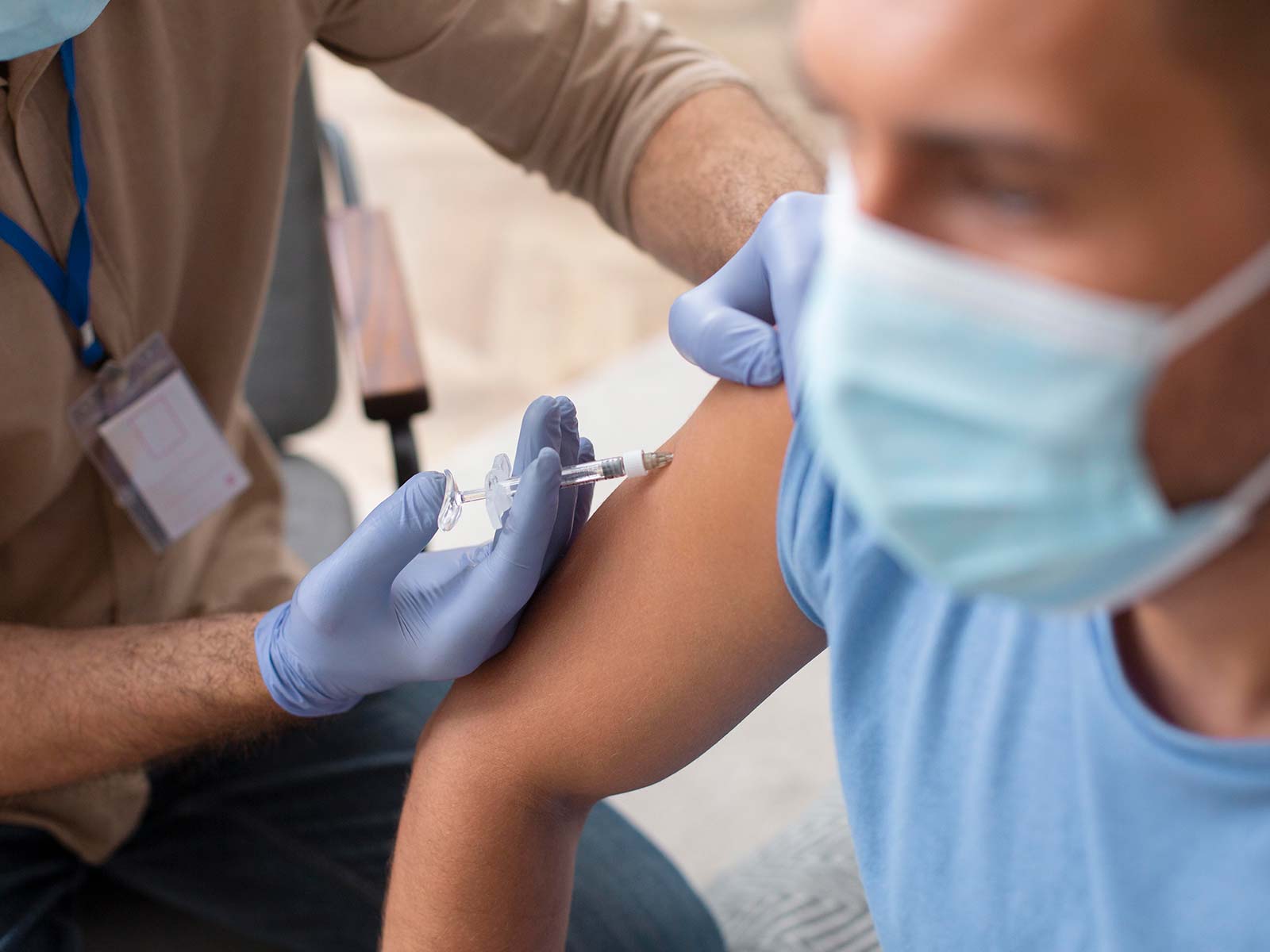
Issue 51
Aug 2024
ETHICALLY SPEAKING
BY ASSISTANT PROFESSOR G. OWEN SCHAEFER, PROFESSOR JERRY MENIKOFF, CENTRE FOR BIOMEDICAL ETHICS (CBME), NUS YONG LOO LIN SCHOOL OF MEDICINE, AND ASSOCIATE PROFESSOR BARNABY YOUNG, HEAD, SINGAPORE INFECTIOUS DISEASES CLINICAL RESEARCH NETWORK, NATIONAL CENTRE FOR INFECTIOUS DISEASES

With careful design and appropriate oversight, people can be deliberately exposed to an infectious disease—for the sake of science.
Nobody likes to get sick, whether from a relatively mild common cold or a potentially more serious condition like malaria. Even mild symptoms like runny noses or coughs can be unpleasant, and for some people, antimicrobials such as antibiotics and other medical treatments may be needed to prevent long-term effects or even the risk of death.
But sometimes, it may be quite rational and even laudable for someone to volunteer to be deliberately exposed to an infectious disease—if not for one’s own sake, then for the sake of science.
This is the case with what is known as challenge studies, or controlled human infection models.
In a challenge study, carefully selected volunteers are deliberately exposed to infectious diseases for varying purposes like better understanding of the natural course of a disease or testing out new vaccines or therapeutics in a controlled environment.
Singapore to embark on first human challenge study this year
Indeed, Singapore will embark on its first challenge study this year, exposing participants to SARS-CoV-2 in a controlled environment with a study design similar to trials previously conducted in the UK.
This study aims to contribute important data to development of the next generation of COVID-19 vaccines with improved abilities to prevent infection and transmission. Developing this challenge trial capacity in Singapore may help promote studies of other regionally endemic conditions like dengue, in the future.
Given that challenge studies involve doing what we usually try to avoid—infecting people with potentially harmful diseases—careful ethical conduct and oversight are needed.
This was the topic of the recent workshop “The Ethics of Human Challenge Studies” jointly organised by the Yong Loo Lin School of Medicine, National University of Singapore (NUS Medicine), and the National Centre for Infectious Diseases (NCID). The event brought together local and international experts to explore how challenge studies can be conducted responsibly.
Challenge studies date back to 18th century
Challenge trials may sound scary and dangerous, but in fact, they have been used since the dawn of modern medical science to progress our knowledge in the prevention and treatment of devastating infectious diseases.
One of the earliest medical trials was British physician Edward Jenner’s smallpox challenge study in the 1790s. That trial demonstrated the efficaciousness of the earliest smallpox vaccine that contributed to the eradication of smallpox in 1977, saving millions of lives worldwide.
While Jenner’s trial was crude by contemporary standards, and did not adhere to the current ethical requirement of only exposing people who have voluntarily agreed to participate, in the decades and centuries since Jenner’s work, challenge trials have developed into a robust, safe and well-regulated methodology to study and combat infectious diseases.
Challenge studies have since been conducted worldwide for infectious diseases such as influenza, dengue, malaria, cholera and most recently SARS-CoV-2.

How risky are challenge studies?
Overall, the same ethical requirements governing all medical research—obtain informed consent, minimise harm to participants, ensure scientific validity, receive appropriate institutional approvals—also apply to challenge studies.
In a context where exposure to an infectious agent is integral to study design, harm minimisation is especially important. Specific mechanisms include careful selection of participants who are least likely to be badly harmed by infection; close monitoring of symptoms and quick access to treatments; and keeping participants in a closed environment until they are no longer infectious and unlikely to spread the disease to others.
Informed consent is also absolutely essential. While there are some contexts where consent may be waived, only competent adults who provide consent may be enrolled in challenge trials. In this way, participants can evaluate and endorse for themselves whether they feel comfortable with being exposed to an infectious disease, in view of the potential social benefits and knowledge such studies bring.
Because participants typically must remain in a contained environment for days or even weeks on end, participants are usually paid a substantial amount as compensation for their time and inconvenience.
Some may be concerned that such substantial payments could distort participants’ judgments, but this risk can be minimised with robust consent provisions. Moreover, given how great a commitment a challenge study involves, it would arguably be unethical not to pay participants a substantial amount.
Challenge trials are not without risks. However, the design criteria for conducting modern-day challenge trials means that the risk a participant could die or suffer from serious long-term injury has been reduced to very, very close to zero.
Engagement with relevant communities and potential participants is also a core part of challenge studies. Indeed, the grassroots organisation, 1Day Sooner emerged during the COVID-19 pandemic and quickly garnered interest from thousands around the world willing to risk their own health in a challenge trial if it would contribute to the acceleration of effective treatments and vaccines for COVID-19.
1Day Sooner has since pivoted to advocate for trials in other infectious diseases. Its success reflects the importance of capturing sentiments of potential participant voices in the development and oversight of challenge trials.
This is not to say challenge trials are without risks. However, the design criteria for conducting modern-day challenge trials means that the risk a participant could die or suffer from serious long-term injury has been reduced to very, very close to zero.
Indeed, a review of hundreds of challenge trials from 1980 to 2021, involving more than 15,000 participants, found no deaths at all, and only a fraction of a percent of participants experienced serious adverse events. This is comparable, or even more favourable, than risk level of many early phase clinical trials of novel therapeutics.
In short, with careful design and appropriate oversight, a challenge study not only can be ethically acceptable, but also an important component of a larger toolbox in combatting infectious diseases.
More from this issue

PEOPLE OF NUS MEDICINE
Leading Research Like Conducting an Orchestra

AFFAIRS OF THE HEART
Advancing Wellness: The Power of Human-Digital Collaboration in Chronic Illness Care

